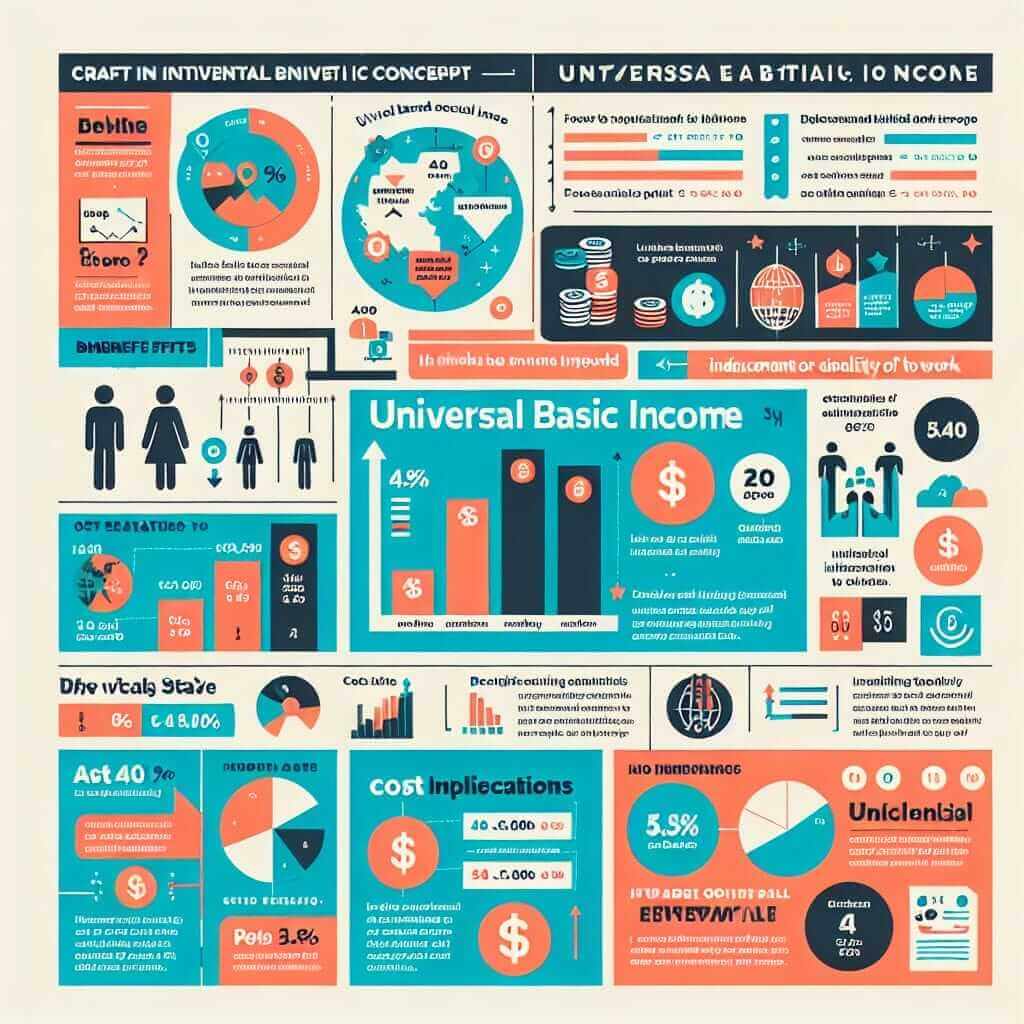The IELTS Reading section often includes passages related to contemporary issues and economic policies. One such topic that has gained significant attention recently is Universal Basic Income (UBI). Although UBI has been debated extensively, implementing it in developed countries poses numerous challenges. This topic is not only timely but also has appeared in various forms in past IELTS exams, making it an ideal subject for practice. By understanding this complex issue, you can enhance your ability to tackle the Reading section effectively.
In this article, we will first create a practice reading passage mimicking the IELTS Reading exam format. We’ll then provide various question types associated with the passage, detailed answers, and an analysis of common pitfalls. Additionally, we’ll explore relevant vocabulary and grammar points to further aid your preparation.
Practice Reading Passage
Challenges in Implementing Universal Basic Income in Developed Countries
Universal Basic Income (UBI) is a policy proposal that involves giving all citizens a fixed amount of money regularly, regardless of their income or employment status. Although it sounds promising for alleviating poverty and reducing inequality, there are several challenges to implementing UBI in developed countries.
Firstly, the cost of UBI is a significant obstacle. Providing every citizen with a basic income would require substantial financial resources. For instance, in the United States, providing $1,000 per month to each adult citizen would cost over $3 trillion a year, an amount that is greater than the total federal budget. Financing such a program would likely necessitate higher taxes or significant cuts to existing welfare programs, which could face political opposition.
Secondly, the effect on the labor market is another concern. Critics argue that UBI could disincentivize work, leading to a reduction in labor force participation. While some believe that a guaranteed income would allow people to pursue education or entrepreneurial ventures, others worry that it might encourage laziness and decrease productivity.
Additionally, the administration and logistics of UBI implementation present further challenges. Establishing a reliable system to distribute payments, ensuring that all citizens receive their share, and preventing fraud are logistical hurdles that need addressing. The infrastructure required to manage such a widespread program would also require a considerable investment.
Lastly, there are social and cultural concerns. In societies where there is a strong work ethic and employment is considered a key aspect of one’s identity, the concept of receiving money without working may be controversial. People might view UBI as undermining the value of hard work and personal responsibility.
In conclusion, while the idea of UBI has its merits, implementing it in developed countries is fraught with challenges. These range from financial and labor market implications to logistical and cultural issues. Addressing these obstacles requires careful consideration and innovative solutions.
Questions
Multiple Choice
-
What is one major financial challenge of implementing UBI in developed countries?
A. Increased employment rates
B. High education costs
C. Substantial financial requirements
D. Enhanced productivity -
Why might UBI face political opposition?
A. It is too easy to implement
B. It leads to decreased social inequality
C. It necessitates higher taxes or welfare cuts
D. It promotes work ethic
Identifying Information (True/False/Not Given)
-
UBI’s cost in the USA is estimated to be less than the total federal budget.
- True
- False
- Not Given
-
UBI guarantees that everyone will pursue education or entrepreneurial ventures.
- True
- False
- Not Given
Matching Headings
-
Match the following headings with the correct paragraphs.
- A. Administration and Logistics
- B. Cost Considerations
- C. Social and Cultural Concerns
- D. Labor Market Effects
Paragraph 1:
Paragraph 2:
Paragraph 3:
Paragraph 4:
Answers and Explanations
Multiple Choice
-
C. Substantial financial requirements
- Explanation: The passage states that the cost of UBI is a significant obstacle and would require substantial financial resources.
-
C. It necessitates higher taxes or welfare cuts
- Explanation: Financing UBI would likely necessitate higher taxes or significant cuts to existing welfare programs, which could face political opposition.
Identifying Information (True/False/Not Given)
-
False
- Explanation: The passage indicates that providing UBI in the USA would cost over $3 trillion a year, which is greater than the total federal budget.
-
Not Given
- Explanation: While the passage mentions that UBI could allow people to pursue education or entrepreneurial ventures, it doesn’t guarantee that everyone will do so.
Matching Headings
- Paragraph 1: B. Cost Considerations
- Paragraph 2: D. Labor Market Effects
- Paragraph 3: A. Administration and Logistics
- Paragraph 4: C. Social and Cultural Concerns
Common Pitfalls
- Not reading questions thoroughly: Sometimes students overlook key information in the questions, leading to incorrect answers.
- Misunderstanding the passage: Carefully re-read the passage if any part seems confusing to ensure comprehension.
- Over-reliance on prior knowledge: Base your answers strictly on the passage, rather than your existing knowledge of the topic.
Vocabulary
- Substantial (adj.) /səbˈstænʃl/: Large in amount or degree
- Disincentivize (v.) /ˌdɪsɪnˈsɛntɪvaɪz/: To discourage someone from doing something
- Logistics (n.) /loʊˈdʒɪstɪks/: The detailed organization and implementation of a complex operation
- Controversial (adj.) /ˌkɒntrəˈvɜrʃl/: Causing public discussion and disagreement
Grammar Point
- Relative Clauses: Use to provide additional information about a noun.
- Example: “Providing every citizen with a basic income, which would cost over $3 trillion a year, poses a financial challenge.”
Conclusion
Achieving a high score in the Reading section of the IELTS requires practice and a thorough understanding of various topics. By studying the discussion on the challenges of implementing UBI in developed countries, you can prepare yourself better for potential exam questions. Focus on improving your comprehension skills, employing effective strategies, and expanding your vocabulary.
Image Illustration

Stay consistent with your practice and keep exploring diverse topics to excel in the IELTS Reading section. Good luck!